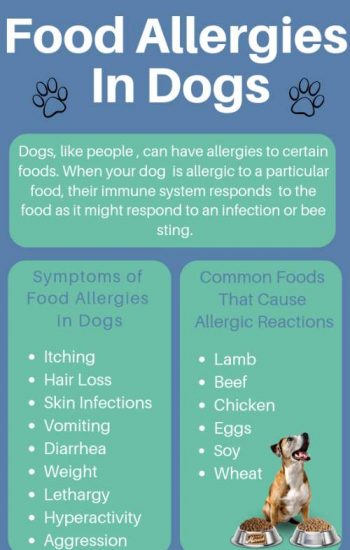
How To Know If My Dog Is Allergic To Food. Unfortunately there is no evidence that blood tests are effective for diagnosing food allergies so this is the best way to figure out whats causing the problem. Allergies are rather common in dogs of all breeds and backgrounds and occur when their immune system has a hyper reaction to a foreign substance Klein explains. In fact food-related skin irritation is the cause of about 20 of the itching and scratching in dogs. Food allergies reflect a more immediate immunological response.

If your dog has short hair these itchy red bumps are easier to. A classic example of a food allergy is anaphylactic shock seen after ingestion. The best way to treat a chicken allergy once it has been discovered is to entirely remove the ingredient from your dogs diet. The primary dog food allergy symptom is itchy skin. If your dog has an allergic reaction then you know that chicken is the reason. Dietary changes solve the problem which can cause hair loss and excessive itching from your dog.
Should you conclude your dog is allergic to common proteins like beef or chicken make sure their food is supplemented with alternative protein sources like duck salmon or whitefish and lamb.
Symptoms of anaphylaxis include hives a swollen face or muzzle drooling vomiting and diarrhea. Dogs with food intolerances develop digestive problems such as gas diarrhea or vomiting within an hour of eating the problem food. Unfortunately there is no evidence that blood tests are effective for diagnosing food allergies so this is the best way to figure out whats causing the problem. If there is no other apparent cause for your dogs symptoms your veterinarian may begin to suspect that food allergies are behind your dogs itchy skin or ear infections. If your dog is diagnosed with a wheat allergy you must carefully read pet food labels and not buy those items that contain wheat. Hives also known as urticaria may pop up 6 to 24 hours after your dog eats the food they are allergic to.